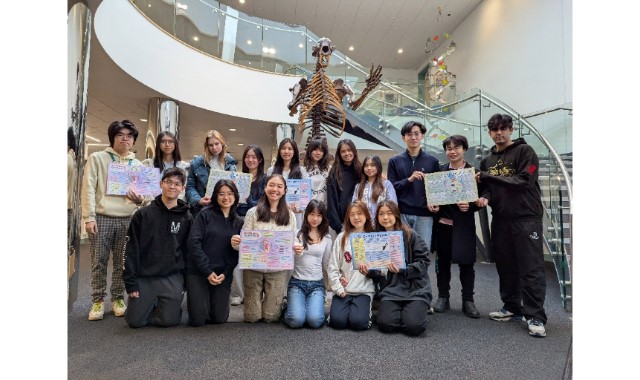THE next generation of medical minds has developed a raft of innovations that could be developed to save countless lives around the globe.
Sixth formers from Concord College, Acton Burnell, near Shrewsbury, reached the finals of three separate prestigious Science in Medicine competitions hosted by Imperial College, London, putting them in the vanguard of medical thinking.
Students took the top prize in the ‘heart’ and ‘lung’ categories and reached the final of the ‘global health’ competition.
- Innovations, which could actually be developed by medical scientists one day, include:
- A non-surgical treatment for arrhythmia which uses an optogenetic pacemaker
- A continuous wheezing detection patch to help asthma sufferers regulate their dosage and reduce overuse side effects
- A wearable patch for the early detection of cholera to stop the spread of disease in refugee camps.
Concord College’s head of science Barry Brown said the students’ incredible innovations, the standards of research and the seamless presentations they had delivered were ‘off the charts’.
He said: “It really is extraordinary that teams of Concordian scientists have won prestigious competitions against an array of very talented students from some of the other top schools in the country.
“This challenge was not just about being good at science; students needed to innovate and develop a novel solution to a problem using creativity and a high degree of collaboration from across all the science disciplines.
“In addition to this, their ability to communicate their ideas fluently and cope with difficult questions from researchers at Imperial College was simply a joy to behold. They truly are the scientists of the future, and I have every confidence that they will go out and make the world a better place through science.”
In total, across five themes this year, there were 235 entries from 138 schools around the UK. Only 10 teams are selected for each of the finals and Concord College was represented in three.
The Optogenetic Pacemaker team comprised Amae, An, Eliana, Simon, Sohaib and Thomas.
Their invention addressed the difficulties with surgically implanted pacemakers instead opting to use a virus carrying gene coded for a protein normally found in the eye, which is light sensitive.
A patch worn on the chest would be linked to a monitor which, if it detected arrythmia, would trigger an infrared light that would penetrate the chest to break down the protein, which would kickstart the heart into its correct rhythm.
“Taking part in the Imperial competition was one of the most intellectually stimulating and rewarding experiences I have ever undertaken,” said Amae, who was team-leader.
“It was an incredible opportunity to conduct independent research in cardiology and genetics, which are areas of personal interest to me.”
“Working with a team of great minds led me to appreciate the value of multidisciplinary groups. Together, we achieved a greater collective outcome than any of us could have reached alone. Winning first place was the cherry on top. I would do it all over again in a heartbeat.”
In the lung category the team of Angela, Clarice, Daria, Matthew, Ying and Zachary designed an asthma patch.
The wheezing patch would use a calibrated sound detection algorithm to adjust the dose of a patient’s reliever according to their symptoms, thereby mitigating inhaler over-use.
The global health team of Joyce, Paco, Dawn, Delfina, Eunis and Vanessa looked at disease in the refugee camps of Cameroon and how easily cholera spread through insanitary conditions.
The big issue was the speed of transmission compared to the relatively slow testing regime. So, the students came up with a patch that used microneedles to take samples from tissue fluid in the skin and indicate in just 15 minutes whether there was any sign of cholera antibodies. Early detection would allow quicker quarantine and reduce the spread of the disease.
The winning teams each collected the top prize of £3,000 to be spent on science-related activities at college and a mentoring session with a university academic.
Mr Brown said: “Students were given the opportunity to talk to leading academics in the field to see if their ideas were feasible. It would not surprise me at all if the academics followed up the innovations and they were workable one day.”
